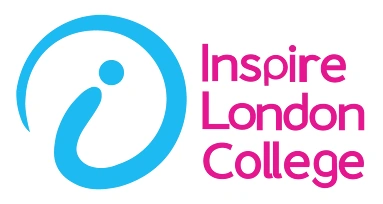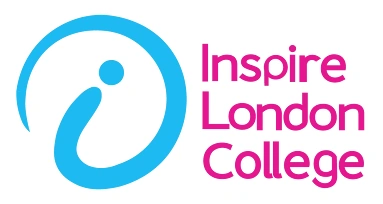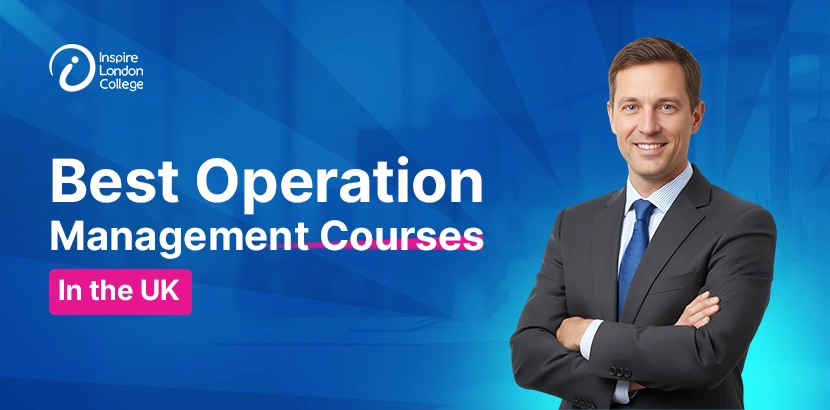Are you ready to take your project management career to the next level in 2026? As businesses across every sector face rapid change, the need for skilled project managers continues to grow. This field no longer revolves around just meeting deadlines; it now demands strategic leadership, adaptability, and sharp decision-making.
In 2026, project management will evolve alongside advancements like AI, automation, and real-time collaboration tools. While these innovations bring exciting opportunities, they also add complexity to every stage of project delivery. That’s where your ability to lead, communicate, and solve problems becomes more valuable than ever.
This article explores the future of project management in 2026. From emerging trends to smart career moves, you’ll get clear, practical tips to increase your impact and secure your place in this fast-moving profession.
Is Project Management a Good Career in 2026?
The short answer is yes, project management is not just a stable career; it’s one of the most in-demand professions globally. According to the Project Management Institute (PMI), employers will need approximately 25 million new project professionals through 2030 to fill critical roles. This demand stretches across IT, healthcare, construction, finance, and education.
In 2026, companies will continue investing in project managers who can drive digital transformation, lead cross-functional teams, and deliver results under pressure. If you’re someone who loves strategy, leadership, and innovation, this is your moment to shine.
Importance of Project Management in Today’s World
Why is project management gaining so much importance? Because businesses cannot afford to waste time or resources. With global competition and rapid change, every decision must count. Project management helps you:
- Deliver projects faster and more efficiently.
- Align work with business strategy.
- Reduce risks and unexpected costs.
- Keep teams focused and motivated.
- Drive customer satisfaction and innovation.
In short, effective project management turns vision into results, something every organisation desperately needs in 2026 and beyond.
Scope of Project Management
What is the future scope of project management? Project management plays a crucial role in ensuring that your goals are met efficiently and effectively. It gives you a structured path to follow, helping you stay on track from start to finish. Whether you’re launching a new product, expanding your business, or streamlining operations, project management equips you with the tools to plan, execute, and deliver results without unnecessary delays or wasted resources.
You gain the power to define clear objectives, allocate resources wisely, and set achievable deadlines. With a solid project management approach, every team member understands their role, which boosts collaboration and reduces confusion. Instead of reacting to challenges, you anticipate them. This proactive mindset keeps your project aligned with its goals even when unexpected changes arise.
Moreover, project management enhances communication. You create a space where updates, feedback, and progress reports flow smoothly. That means fewer misunderstandings and more informed decisions. Using methods like Agile, Scrum, or Waterfall can help you adapt your strategy based on the project’s nature and complexity, making your approach flexible and tailored.
You also benefit from tracking tools that measure performance and highlight areas needing improvement. These insights don’t just help in the current project; they sharpen your strategies for future ones. With each completed project, you build a stronger foundation for the next, improving productivity and strengthening results.
Trends of Project Management in 2026
Let’s explore what are the future trends in project management?
1. Artificial Intelligence
In 2026, AI in project management has stepped up as a smart assistant. Think of AI not as a replacement but as a force multiplier. With advanced tools, you can now automate repetitive tasks like scheduling, reporting, and risk flagging. AI can forecast delays based on real-time data, suggest the best resource allocation, and even assess team workload to avoid burnout.
Platforms like Asana, Trello, and Microsoft Project now come with AI-powered insights. These insights help you identify potential roadblocks long before they derail your project. The best part is you’re making informed decisions faster and more accurately.
Moreover, with generative AI models, you can write project charters, summarise meetings, and generate stakeholder reports in seconds. This trend saves you time, boosts productivity, and allows you to focus more on leadership and less on logistics.
2. Impact of Emotional Intelligence (EQ)
EQ is becoming more valuable than IQ in many project environments. As a project manager, your ability to empathise, resolve conflict, and inspire trust can directly impact team performance.
In 2026, organisations want leaders who can manage stress, lead with empathy, and adapt to emotional dynamics across diverse teams. If you sharpen your emotional intelligence, you’ll find yourself leading more resilient, productive, and motivated teams.
3. Cybersecurity
If you handle sensitive data, manage remote teams, or work with multiple cloud platforms, then cybersecurity is no longer just the IT team’s job. In 2026, you need to embed cybersecurity protocols into your project plans from day one. Why? Because one data breach can cost your company its reputation, customers, and even regulatory fines.
Cybersecurity risk management has become a crucial project deliverable. You must ensure that every tool, from collaboration platforms to CRMs, follows secure access controls and encryption standards. Moreover, stricter regulations like GDPR and ISO updates now require you to proactively demonstrate your data protection measures.
Being aware of cybersecurity trends and aligning your project lifecycle around secure practices doesn’t just protect your data; it builds trust with clients and stakeholders.
4. Remote and Hybrid Work Management Demands New Skills
Chances are, you’ve already seen teams move away from traditional office spaces. This shift changes how you manage communication, engagement, accountability, and delivery.
Still, traditional project management methods often struggle to support your team when it works across different cities or even time zones. Now, you need to rely on digital collaboration tools like ClickUp, Slack, or Zoom, while also balancing asynchronous communication. But tools alone aren’t enough. You must master emotional intelligence, cultural sensitivity, and digital leadership.
Adapting your approach means creating flexible timelines, redefining productivity metrics, and emphasising transparent communication. When done right, remote project management boosts productivity and attracts top talent, regardless of location.
5. Sustainability and ESG Goals Drive Project Outcomes
If you’re managing projects in 2026 without considering sustainability or ESG (Environmental, Social, and Governance) factors, you’re already behind. Stakeholders, especially younger generations, expect your projects to deliver more than profits. They want a responsible impact.
Whether it’s reducing the carbon footprint of operations, promoting ethical supply chains, or ensuring diversity in team structures, sustainability is becoming a core success metric. Project managers are now integrating ESG checkpoints into each phase of the project lifecycle, from planning to closure.
This trend requires you to think long-term. You’re not just managing deliverables; you’re ensuring your project aligns with global values, industry regulations, and public expectations. This isn’t just good ethics; it’s smart business.
6. Data-Driven Decision-Making Gives You a Competitive Edge
In 2026, data-driven decision-making will define successful project management. With tools that offer real-time dashboards, KPI tracking, and predictive analytics, you now have everything you need to make smarter decisions at every stage.
Instead of reviewing progress during weekly check-ins, you access a dashboard that shows team performance, budget burn rate, and risk indicators instantly. If a delay looks likely, your system alerts you early. Now you can take action before the issue snowballs.
You need to develop skills in data interpretation and storytelling to lead in this trend. You must communicate insights clearly to stakeholders and make decisions rooted in evidence, not assumptions. This approach not only minimises errors but also earns you credibility and trust.
Career Growth Tips
Whether you’re just starting your career or ready to advance your role, project management in 2026 opens up exciting opportunities if you know how to make the most of them. So, how do you stand out and stay future-ready?
Let’s explore how you can take charge of your growth in today’s fast-moving project management world.
1. High Demand
The global economy now relies heavily on project-based work. According to PMI, there will be 25 million new project management roles globally through 2030. That means opportunities are everywhere, from startups to government sectors.
If you’re still wondering whether you chose the right path, rest assured that the demand proves otherwise. What really matters now is how you position yourself. Stay informed about industry-specific roles and tailor your skills accordingly. That edge will help you secure interviews and promotions faster than you think.
2. Job Security
With so many industries facing disruption, project management stands out as a resilient and stable career path. When businesses restructure or pivot, they lean heavily on project managers to maintain momentum. If you build a strong portfolio and stay adaptable, you’ll enjoy a level of job security that many other roles can’t offer in this fast-changing world.
3. Leadership Opportunities
If you’re waiting for a formal promotion to prove you’re a leader, you’re missing chances to grow. In reality, leadership starts the moment you take ownership of a project, a challenge, or even a failed plan that needs fixing.
Start taking the lead on cross-team initiatives, mentor junior colleagues, and present status updates with clear strategy and purpose. When you act like a leader now, decision-makers start treating you like one. Over time, this builds trust and makes your next promotion feel like a natural step, not a stretch.
4. Build Your Career Path and Upgrade Your CV
It’s tempting to chase the next job, but real career growth begins when you set clear goals. Do you see yourself as a portfolio manager or program director? Once your destination is clear, every course, project, and certification should lead you there.
One powerful way to boost your career and strengthen your CV is through focused learning. Inspire London College’s project management qualifications are designed to help you stand out in a competitive market. As you gain experience, keep your CV updated; highlight your certifications, tools you’ve mastered, projects you’ve led, and results you’ve delivered.
Today’s employers want professionals who deliver impact. When your certifications align with your goals, you don’t just attract attention; you land the job.
5. Maintain Work-Life Balance
Yes, ambition matters, but burnout can stall your progress faster than any bad manager. You must protect your energy to sustain long-term success. In 2026, top-performing project managers aren’t just productive; they’re balanced, focused, and present.
Use tools that streamline workflows, such as Notion, Trello, or Monday.com. Set boundaries. Prioritise wellness just as much as deadlines. When you bring energy and clarity to your work, your performance and career naturally improve.
6. Earning Potential
Now, let’s talk about money. The average project manager in the UK earns between £35,000 to £68,000, with experienced professionals making over £67,000 on an average in senior roles. Salaries in tech and financial services often sit at the higher end of that spectrum.
But climbing the salary ladder takes more than time. You need to deliver results, complete projects under budget, lead diverse teams, and build trust with stakeholders. With the right certifications and industry expertise, you can fast-track your earnings and move into higher-paying roles faster than experience alone allows.
7. Set Career Milestones, Not Just Goals
It’s easy to say you want a promotion or to lead bigger projects, but vague goals rarely drive real progress. Instead, break your career vision into clear, achievable milestones. Start with something specific, like leading your first cross-functional project. Then, aim to complete a relevant certification within the next three months. Consider mentoring a junior project coordinator this quarter or presenting at an industry webinar before the year ends. These measurable steps keep you focused, build momentum, and show employers that you take initiative in your project management journey. When you track your progress this way, you not only boost your confidence; you also prove you’re serious about long-term growth.
8. Network and Build Strong Professional Relationships
Who you know matters almost as much as what you know. Join project management communities such as PMI, and attend webinars, LinkedIn events, and industry meetups. Don’t just collect contacts; build genuine relationships.
Networking exposes you to job openings, mentorship, collaboration opportunities, and insights into trends. Often, the best opportunities come through recommendations and personal connections, not job boards.
Pursue Project Management Certification
Certificates do more than just look impressive on your CV; they open doors to better opportunities, higher salaries, and leadership roles. Employers actively seek certified project managers because it signals more than just knowledge; it shows you’re committed, skilled, and aligned with industry standards.
If you’re looking to break into project management or fast-track your current career, the Level 7 Diploma in Project Management from Inspire London College is a powerful choice. This career-focused programme equips you with practical tools and skills, empowering you to lead confidently in today’s fast-changing business world. It adapts to real-world demands, ensuring you stay ahead in a constantly evolving environment.
What will you gain? You’ll build practical expertise in key areas, including:
- Planning, leading, and controlling complex projects
- Procurement, contract negotiation, and risk management
- Advanced project logistics and operations strategies
- Stakeholder engagement and agile project delivery
- Data-driven decision-making and advanced research techniques
With Inspire London College’s fully online format, you can study anytime, anywhere, without putting your career on hold. Whether you’re entering the field or aiming for senior-level roles, this qualification gives you a competitive edge in today’s job market. Get more details about this qualification here.









